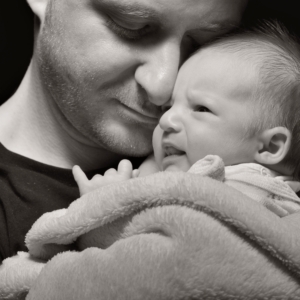It’s Maternal Mental Health Month which aims to raise awareness of the challenges that can arise for parents in the period before and after the birth of a child. This topic is one that’s close to Family Action’s heart, thanks to our Perinatal Support Services, which provide emotional support to families where a parent is struggling with their emotional health or wellbeing during this period.
To mark the occasion, we asked our Stockton Perinatal Support Service for its top tips to support new parents and parents-to-be with building and maintaining their own mental health, read on to find out more.
 Different is doable
Different is doable
Babies are as individual as adults and they all have their own unique preferences and wants. Your baby might need lots of physical contact, need more frequent feeding or may cry more than you thought they would. Seek medical advice for anything you are concerned about but do remember babies aren’t all the same.
Be real, not perfect
There is no such thing as a perfect parent, so forget the “yummy mummy” myths and the Instagram-perfect portrayals of motherhood. You are on your own parenting journey, take individual steps in time with yours, and your baby’s, rhythm.
Be mindful of your mind
Guilt is a very common feeling for all parents so be aware of where any guilt you experience is coming from and think about if it is based on truth or perception. Be kind to yourself!
Find a nap between the nappies
Babies and young children don’t necessarily sleep when we ‘expect’ them to and it can be extremely challenging to go from sleeping a solid eight hours a night to having frequently disrupted sleep. Lack of sleep can leave us feeling lethargic, lacking in motivation and sometimes even quite tearful. Try to sleep through the day when your baby naps or seek support from a family member or friend to give you a few hours of dedicated rest.
“You are on your own parenting journey, take individual steps in time with yours, and your baby’s, rhythm.”
Slow and steady wins the race
Bonding and attachment with your baby isn’t always immediate. Give yourself time to readjust to being a parent to a new baby. If you are concerned share your feelings with someone you feel safe with or seek support from professionals or peers.
Self-care isn’t selfish
Self-care may sound like a cliché but it is extremely important to take some guilt-free time for yourself as a parent. Allow yourself to say yes to offers of support as it’s essential to have some space and time to yourself even if it just to take a shower in peace or go for a short walk.
Saying no isn’t negative
Create boundaries. It’s very easy to allow frequent visitors to take over or immerse yourself in online versions of perfect parenting. If something or someone is making you feel negative about yourself take a break from it/them or discuss it with them.
 A problem shared is a problem halved
A problem shared is a problem halved
Joining groups or online forums and following blogs can be a great source of support. The likelihood is if you are struggling at 2am someone else in the world is too so reach out – you are not alone.
Putting one foot in front of the other
Exercise is great for both your body and mind so take some time for gentle exercise, such as a short walk. Be mindful of your surroundings – taking notice of things such as the warmth of the sun on your face and the birds singing. You can even say hello to others… It’s these small things that can brighten your day and help you stay positive.
Sharing is caring
Speak out and be clear with others about how you are feeling; if you are struggling or have concerns then reach out to others and express what you are thinking and feeling. Access support from services when you need to as people are there to help support you and your baby on your journey together. You and your baby are seen, heard and cared about!
If you’d like to find out more about the support we offer visit our Perinatal Support Services here.




